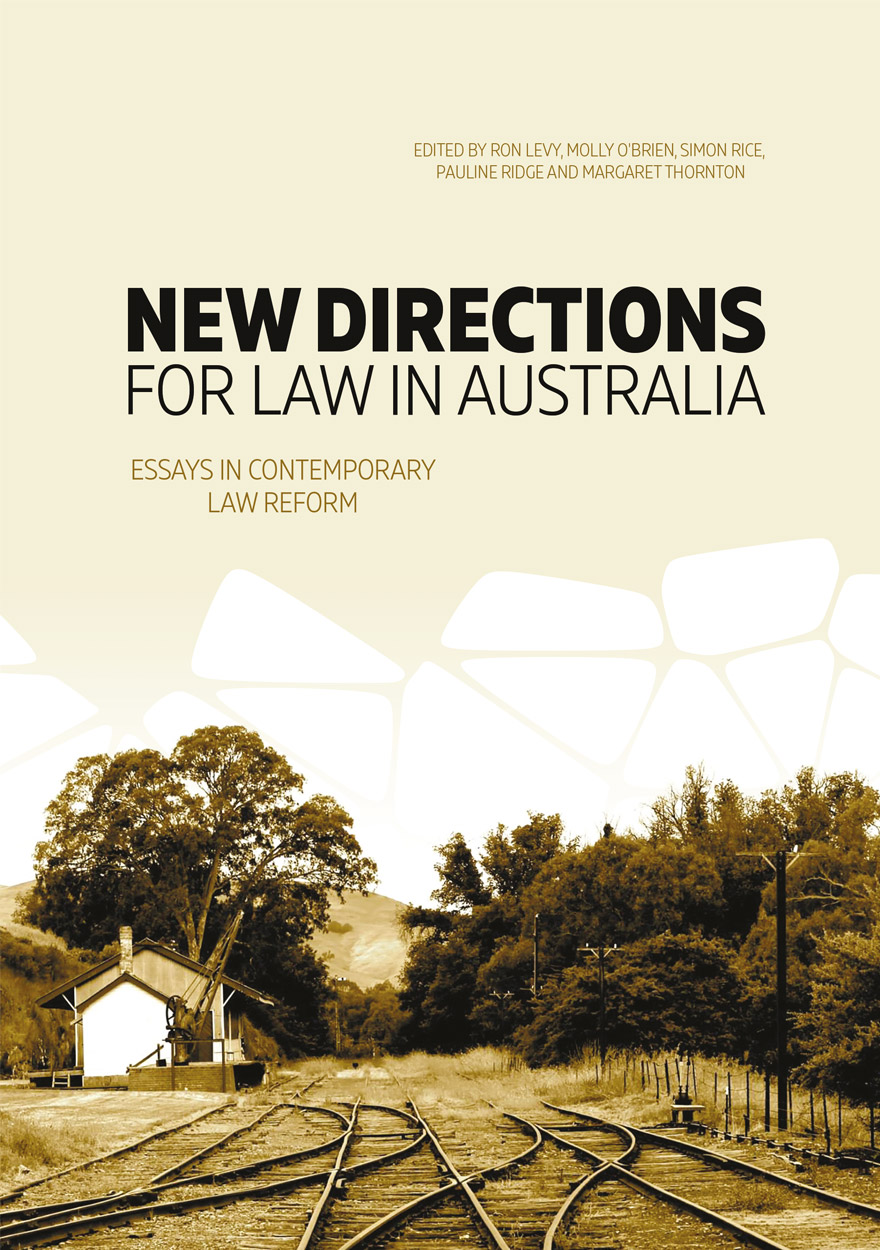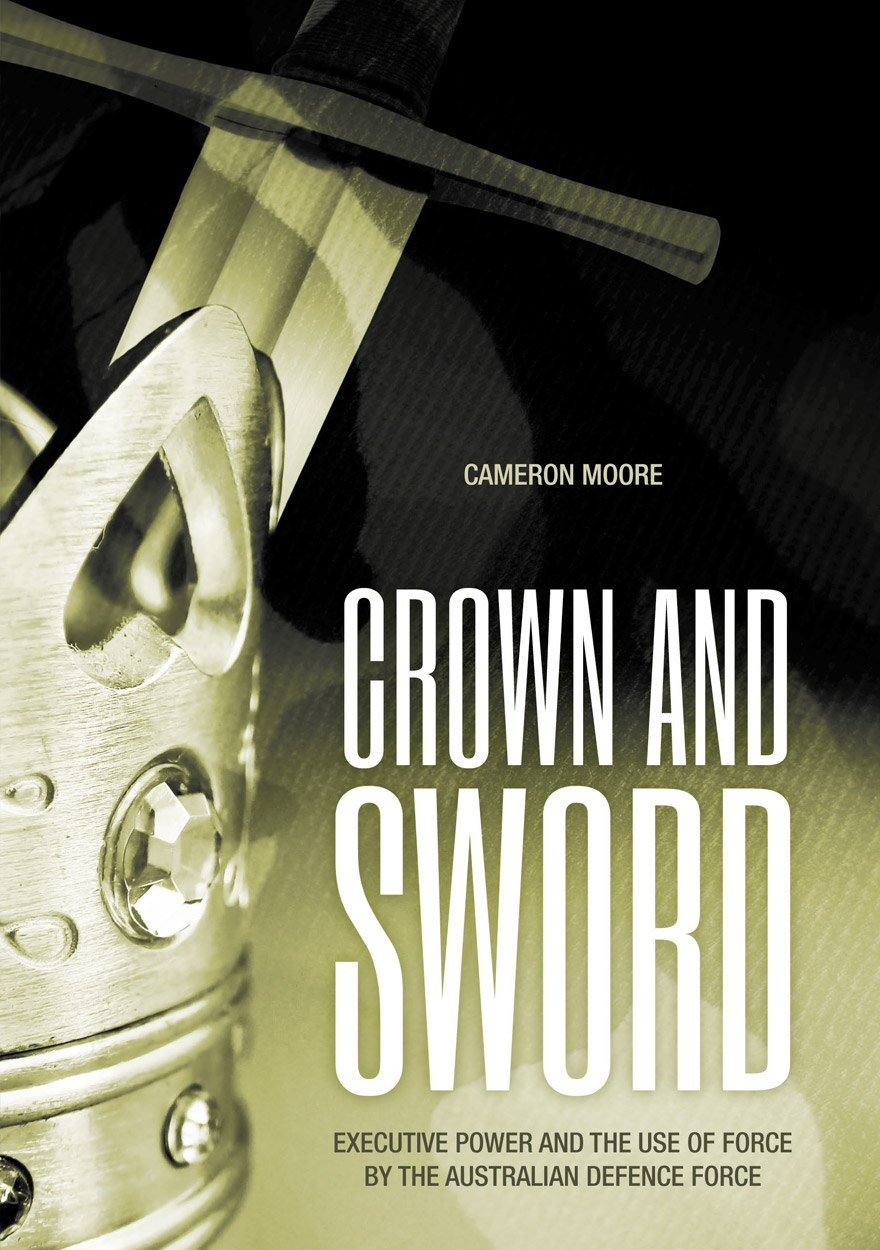Books
Browse or search ANU Press' range of books or find out more about the publications' authors and co-publishers. Download the book for free or buy a print-on-demand copy.
Displaying results 1 to 10 of 41.

Asian Socialism and Legal Change »
The dynamics of Vietnamese and Chinese Reform
Edited by: John Gillespie, Pip Nicholson
Publication date: August 2005
Although the immense process of economic and social transformation currently underway in China and Vietnam is well known, less attention has been devoted to the process of Chinese and Vietnamese legal change.
Asian Socialism and Legal Change brings together experts to analyse recent developments in the legal sphere, representing the diversity and dynamism of this process. This book is the first systematic analysis of legal change in Asian transitional economies.

Australian Clinical Legal Education »
Designing and operating a best practice clinical program in an Australian law school
Authored by: Adrian Evans, Anna Cody, Anna Copeland, Jeff Giddings, Peter Joy, Mary Anne Noone, Simon Rice
Publication date: February 2017
Clinical legal education (CLE) is potentially the major disruptor of traditional law schools’ core functions. Good CLE challenges many central clichés of conventional learning in law—everything from case book method to the 50-minute lecture. And it can challenge a contemporary overemphasis on screen-based learning, particularly when those screens only provide information and require no interaction.
Australian Clinical Legal Education comes out of a thorough research program and offers the essential guidebook for anyone seeking to design and redesign accountable legal education; that is, education that does not just transform the learner, but also inculcates in future lawyers a compassion for and service of those whom the law ought to serve.
Established law teachers will come to grips with the power of clinical method. Law students struggling with overly dry conceptual content will experience the connections between skills, the law and real life. Regulators will look again at law curricula and ask law deans ‘when’?

Looking for Love in the Legal Discourse of Marriage »
Authored by: Renata Grossi
Publication date: September 2014
This book examines the (in)visibility of romantic love in the legal discourse surrounding modern Australian marriage. It looks at how romantic love has become a core part of modernity, and a dominant part of the Western marriage discourse, and considers how the ideologies of romantic love are (or are not) replicated in the legal meaning of marriage. This examination raises two key issues. If love has become central to people’s understanding of marriage, then it is important for the legitimacy of law that love is reflected in both the content and application of the law. More fundamentally, it requires us to reconsider how we understand law, and to ask whether it is engaged with emotions, or separate from them. Along the way this book also considers the meaning of love itself in contemporary society, and asks whether love is a radical force capable of breaking down conservative meanings embedded in institutions like marriage, or whether it simply mirrors them. This book will be of interest to everyone working on love, marriage and sexuality in the disciplines of law, sociology and philosophy.

Critical Perspectives on the Scholarship of Assessment and Learning in Law »
Volume 1: England
Edited by: Alison Bone, Paul Maharg
Publication date: July 2019
The Assessment in Legal Education book series offers perspectives on assessment in legal education across a range of Common Law jurisdictions. Each volume in the series provides:
Information on assessment practices and cultures within a jurisdiction.
A sample of innovative assessment practices and designs in a jurisdiction.
Insights into how assessment can be used effectively across different areas of law, different stages of legal education and the implications for regulation of legal education assessment.
Appreciation of the multidisciplinary and interdisciplinary research bases that are emerging in the field of legal education assessment generally.
Analyses and suggestions of how assessment innovations may be transferred from one jurisdiction to another.
The series will be useful for those seeking a summary of the assessment issues facing academics, students, regulators, lawyers and others in the jurisdictions under analysis. The exemplars of assessment contained in each volume may also be valuable in assisting cross-jurisdictional fertilisation of ideas and practices.
This first volume focuses on assessment in law schools in England. It begins with an introduction to some recent trends in the culture and practice of legal education assessment. The first chapter focuses on the general regulatory context of assessment and learning in that jurisdiction, while the remainder of the book offers useful exemplars and expert critical discussion of assessment theories and practices.
The series is based in the PEARL Centre (Profession, Education and Regulation in Law), in The Australian National University’s College of Law.

Law and Democracy »
Contemporary Questions
Edited by: Glenn Patmore, Kim Rubenstein
Publication date: December 2014
Law and Democracy: Contemporary Questions provides a fresh understanding of law’s regulation of Australian democracy. The book enriches public law scholarship, deepening and challenging the current conceptions of law’s regulation of popular participation and legal representation. The book raises and addresses a number of contemporary questions about legal institutions, principles and practices:
How should the meaning of ‘the people’ in the Australian Constitution be defined by the High Court of Australia?
How do developing judicial conceptions of democracy define citizenship?
What is the legal right to participate in the political community?
Should political advisors to Ministers be subject to legal accountability mechanisms?
What challenges do applied law schemes pose to notions of responsible government and how can they be best addressed?
How can the study of the ritual of electoral politics in Australia and other common law countries supplement the standard account of democracy?
How might the ritual of the pledge of Australian citizenship limit or enhance democratic participation?
What is the conflict between legal restrictions of freedom of expression and democracy, and the role of social media?
Examining the regulation of democracy, this book scrutinises the assumptions and scope of constitutional democracy and enhances our understanding of the frontiers of accountability and responsible government. In addition, key issues of law, culture and democracy are revealed in their socio-legal context.
The book brings together emerging and established scholars and practitioners with expertise in public law. It will be of interest to those studying law, politics, cultural studies and contemporary history.

A Bird That Flies With Two Wings »
Kastom and state justice systems in Vanuatu
Authored by: Miranda Forsyth
Publication date: September 2009
This book investigates the problems and possibilities of plural legal orders through an in-depth study of the relationship between the state and customary justice systems in Vanuatu. It argues that there is a need to move away from the current state-centric approach to law reform in the South Pacific region, and instead include all state and non-state legal orders in development strategies and dialogue. The book also presents a typology of models of engagement between state and non-state legal systems, and describes a process for analysing which of these models would be most advantageous for any country in the South Pacific region, and beyond.

Passage of Change »
Law, Society and Governance in the Pacific
Edited by: Anita Jowitt, Tess Newton
Publication date: November 2010
Numerous issues face Pacific states trying to find their way in the early 21st century. Countries are striving to secure the benefits of modernisation. Governance, law and order are needed to reach such a goal, but development cannot be at the price of culture or the environment. The question of how to develop and maintain sound legal systems and legal rules whilst maintaining the unique cultural heritages within the Pacific is a challenge with no easy answer. This interdisciplinary collection locates issues of law and governance within the particular socio-political context of the Pacific island region, presenting sociological, anthropological and political insights alongside jurisprudential analysis. Key issues including corruption, the role of customary law in modern legal systems, the place of human rights in the Pacific, environmental issues and the structure of the state are explored from a variety of perspectives.

A Philosophy of Intellectual Property »
Authored by: Peter Drahos
Publication date: June 2016
Are intellectual property rights like other property rights? More and more of the world’s knowledge and information is under the control of intellectual property owners. What are the justifications for this? What are the implications for power and for justice of allowing this property form to range across social life? Can we look to traditional property theory to supply the answers or do we need a new approach? Intellectual property rights relate to abstract objects – objects like algorithms and DNA sequences. The consequences of creating property rights in such objects are far-reaching. A Philosophy of Intellectual Property argues that lying at the heart of intellectual property are duty-bearing privileges. We should adopt an instrumentalist approach to intellectual property and reject a proprietarian approach – an approach which emphasises the connection between labour and property rights. The analysis draws on the history of intellectual property, legal materials, the work of Grotius, Pufendorf, Locke, Marx and Hegel, as well as economic, sociological and legal theory. The book is designed to be accessible to specialists in a number of fields as well as students. It will interest philosophers, political scientists, economists, and legal scholars, as well as those professionals concerned with policy issues raised by modern technologies and the information society.
Download for free
Not available for purchase

New Directions for Law in Australia »
Essays in Contemporary Law Reform
Edited by: Ron Levy, Molly O’Brien, Simon Rice, Pauline Ridge, Margaret Thornton
Publication date: September 2017
For reasons of effectiveness, efficiency and equity, Australian law reform should be planned carefully. Academics can and should take the lead in this process. This book collects over 50 discrete law reform recommendations, encapsulated in short, digestible essays written by leading Australian scholars. It emerges from a major conference held at The Australian National University in 2016, which featured intensive discussion among participants from government, practice and the academy. The book is intended to serve as a national focal point for Australian legal innovation. It is divided into six main parts: commercial and corporate law, criminal law and evidence, environmental law, private law, public law, and legal practice and legal education. In addition, Indigenous perspectives on law reform are embedded throughout each part. This collective work—the first of its kind—will be of value to policy makers, media, law reform agencies, academics, practitioners and the judiciary. It provides a bird’s eye view of the current state and the future of law reform in Australia.

Crown and Sword »
Executive power and the use of force by the Australian Defence Force
Authored by: Cameron Moore
Publication date: November 2017
The Australian Defence Force, together with military forces from a number of western democracies, have for some years been seeking out and killing Islamic militants in Iraq, Syria and Afghanistan, detaining asylum seekers for periods at sea or running the judicial systems of failed states. It has also been ready to conduct internal security operations at home. The domestic legal authority cited for this is often the poorly understood concept of executive power, which is power that derives from executive and not parliamentary authority. In an age of legality where parliamentary statutes govern action by public officials in the finest detail, it is striking that these extreme exercises of the use of force often rely upon an elusive legal basis. This book seeks to find the limits to the exercise of this extraordinary power.



